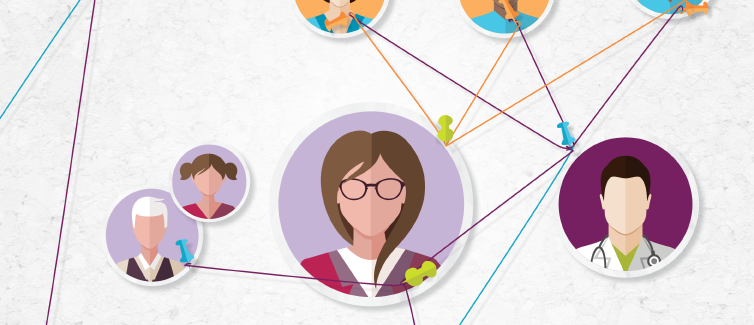As part of the largest rehabilitation network in western Pennsylvania — and one of the largest in the United States — the UPMC Rehabilitation Institute is a nationally recognized center of excellence.
The UPMC Rehabilitation Institute offers specialized care for patients with a wide range of injuries and illnesses, ranging from stroke and trauma to spinal cord and brain injuries. The institute also provides inpatient physical, occupational, and speech therapy.
It takes a team to provide this quality of care. Our experts combine extensive clinical experience with advanced technology and research to offer patients cutting-edge treatments. These experts make up a patient’s core rehabilitation team.
For more information on the UPMC Rehabilitation Institute, visit UPMC.com/RehabInstitute.

Never Miss a Beat!
Subscribe to Our HealthBeat Newsletter!
Thank you for subscribing!
You can now select the specific newsletters you'd like to receive.
You are already subscribed.
Subscribe to more newsletters in our email preference center.
Sorry, an error occurred. Please try again later.
Get Healthy Tips Sent to Your Phone!
Meet Your Rehabilitation Care Team
The Physiatrist
Doctors certified in physical medicine and rehabilitation are called physiatrists, and they function as the care team’s leader. Their goal is to help you restore function and overcome physical limitations following an injury. They look at the whole patient, and diagnose and treat conditions using:
- Rehabilitation techniques
- Medical management
- Pharmacotherapy
The Rehabilitation Nurse
Your rehabilitation nurse makes sure your day-to-day needs are met, so you’ll see this team member most often. They will also:
- Help you apply what you are learning to your daily activities
- Assist you in putting all the pieces of your care together
- Interact with family and friends to further involvement and cooperation
The Physical Therapist
Physical therapists, or PTs, work with you to improve function and mobility. They use the following to help you become as independent as possible:
- Therapeutic exercise
- Mobility devices
- Techniques for pain relief
- Advanced equipment
The Speech-Language Pathologist
Your speech-language pathologist, or SLP, focuses on communication abilities. SLPs help treat swallowing disorders and work on retraining cognitive functions, like memory, attention, and language. They use the following tools or methods to help their patients:
- Logbooks
- Calendars
- Other communication and cognitive devices
- Prescribing modified diets
- Teaching swallowing techniques
The Occupational Therapist
Occupational therapists, or OTs, work closely with you to regain the following skills and abilities for daily living:
- Eating
- Getting dressed
- Preparing a meal
OTs also offer creative, adaptive solutions to complete tasks with assistive devices such as:
- Orthotics
- Tools that help grab or reach for items
- Splints
- New methods to help you do familiar tasks
Your Family and Friends
Family and friends are an important part of your care team. They will learn about the recovery process and how to make it easier for you to return home. Having family and friends included in the rehabilitation process enables you to live as safely and independently as possible.
About UPMC Rehabilitation Institute
The UPMC Rehabilitation Institute offers inpatient, outpatient, and transitional rehabilitation, as well as outpatient physician services so that care is available to meet the needs of our patients at each phase of the recovery process. Renowned physiatrists from the University of Pittsburgh Department of Physical Medicine and Rehabilitation, as well as highly trained physical, occupational, and speech therapists, provide individualized care in 12 inpatient units within acute care hospitals and over 80 outpatient locations close to home and work.
